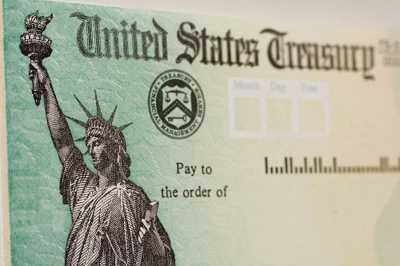 NEW YORK: US Treasury yields fell to four-month lows on Tuesday as growing fears about Britain leaving the European Union weighed on risk appetite and further pared expectations of a Federal Reserve interest rate hike this year.
NEW YORK: US Treasury yields fell to four-month lows on Tuesday as growing fears about Britain leaving the European Union weighed on risk appetite and further pared expectations of a Federal Reserve interest rate hike this year.
Recent polls have shown a growing majority of Britons favor leaving the European Union in a June 23 referendum. That has sparked selling in riskier assets and boosted prices for safe-haven government bonds, which move in the opposite direction of yields.
"The market is really afraid of the uncertainty of what the outcome will actually be, because the polls have been ebbing and flowing exit and remain and are currently kind of tilted toward an exit," said Tony Bedikian, head of global markets at Citizens Bank in Boston.
The US bond market has been the main beneficiary of the global risk-off sentiment as sovereign debt yields around the world have fallen to all-time lows.
German 10-year government bond yields fell below zero for the first time overnight, touching an all-time low of -0.03 percent.
British government 10-year yields fell to 1.131 percent and Japanese 10-year yields fell to -0.168 percent, both record lows.
Benchmark 10-year US Treasury notes rose 6/32 in price to yield 1.596 percent. Yields had earlier fallen to 1.567 percent.
Fed funds futures showed investors saw virtually no chance of the Fed raising US rates this month after May's payrolls report showed employers added only 38,000 jobs, missing expectations of 160,000. Odds have drifted toward zero as polls have shown the increasing likelihood of a Brexit.
Traders now see only a 2 percent chance of a June rate hike, according to CME Group's FedWatch tool, and odds of a rate increase are below 50 percent out to December.
Yields on Tuesday pared earlier losses after the release of a stronger-than-expected US retail sales report that suggested economic growth was picking up despite the recent slowdown in job creation.
Data on Tuesday also showed the largest increase in four years in US import prices.
"Certainly it's encouraging to see the retail sales number coming in above expectations and import prices showing some signs of life," Bedikian said. "We got some positive signs but I think the market needs to be fed more positive data over the coming weeks to get this risk-off trade reversed."
The yield curve flattened, with the spread between two- and 10-year Treasuries yields contracting to its narrowest since November 2007.


























Comments
Comments are closed.